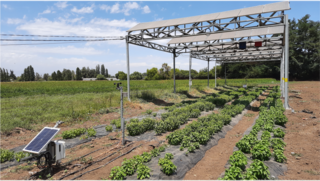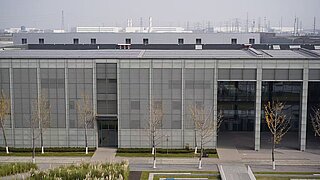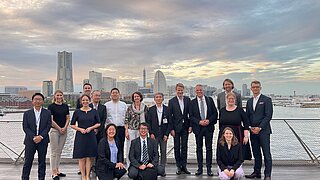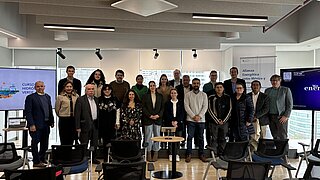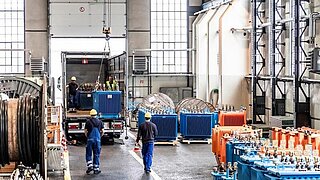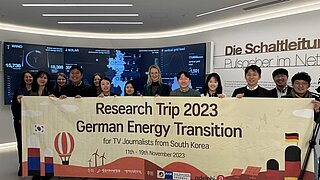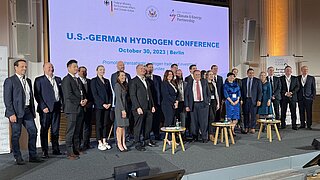Deepening energy cooperation between the MENA region and Europe – A focus on infrastructure
The second Mena-Europe Future Energy Dialogue (MEFED) in Thessaloniki, Greece, co-hosted by Ministers Theodoros Skylakakis (Greece) and Dr. Robert Habeck (Germany) brought together high-level representatives of industry, grid operators and policy to accelerate infrastructure development for green electricity and hydrogen to enable increasing cross-regional energy trade.
Background
Developing cross-border energy infrastructure is crucial to achieving energy targets in both the MENA region and Europe. Europe’s future energy system will depend not only on ambitious domestic renewable energy and hydrogen production but also on diversified imports of renewable electricity and hydrogen. Interconnecting national and regional energy systems enhances energy security, lowers costs, and facilitates the efficient integration of variable renewable sources like wind and solar, while also reducing blackout risks. The MENA region is uniquely positioned as a strategic partner for Europe, with abundant renewable energy resources that can accelerate local transitions, drive revenue through green energy trade, and create future-proof jobs.
While many individual cross regional infrastructure projects are currently in development (e.g. South H2, Elmed), a comprehensive integrated approach towards cross-regional energy infrastructure development between the MENA region and the EU is lacking.
Challenge and Goal
By 2050, Europe aims to become the first climate-neutral continent. Achieving this target requires transforming its energy system while strengthening cross-regional electricity and hydrogen networks. Enhanced interconnections with the MENA region are a strategic, no-regret option due to its proximity and vast renewable energy potential. The goal is to advance cross-regional energy infrastructure by ensuring the timely development of electricity interconnectors, cross-border transmission systems, and hydrogen corridors between the EU and MENA region.
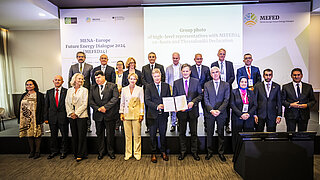
Action taken
Focusing on cross-regional energy infrastructure for green electricity, hydrogen and derivatives to enable increasing energy trade between the MENA region and Europe, MEFED24 brought together 300 high-level participants from 25 countries, including 10 (deputy) ministers, the Directors General DG ENER and DG NEAR, IRENA, IEA, EIB, Ambassadors of AUT, ITA, NLD and over 100 representatives of the private sector, infrastructure operators and financial institutions.
Discussions highlighted opportunities for energy trade and the importance of mobilizing financing to close EU-MENA infrastructure gaps. The Thessaloniki Declaration adopted at MEFED24 underlined the need for dialogue on cross-border energy infrastructure. The messages of MEFED24 were taken up at COP29 through a high-level panel discussion between the UAE, EIB, IRENA, RCREEE and REN21 on grids and storage solutions to achieve the COP28 consensus on Tripling Up Renewables.
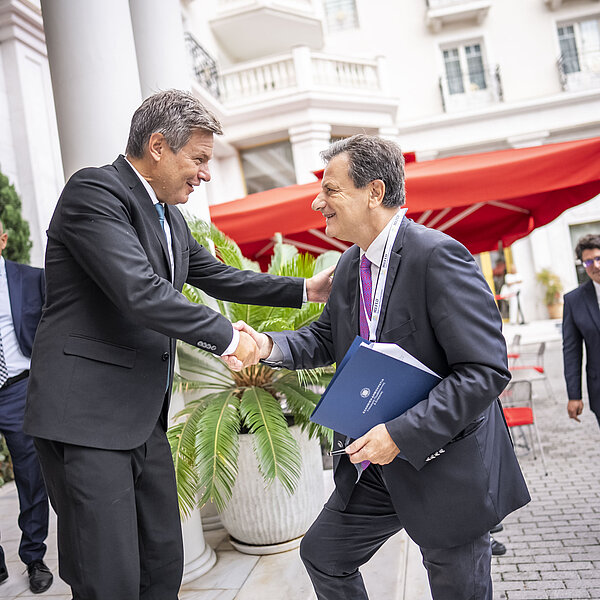
Impact
MEFED24 and associated activities (study, advisory group) have significantly advanced the dialogue on cross-regional energy infrastructure between the EU and MENA region and has become a key forum for advancing renewable electricity and hydrogen trade. By addressing key challenges like financing gaps and regulatory hurdles, it catalyzed cooperation among public and private stakeholders. The MEFED process intensified knowledge sharing on infrastructure planning and financing. These efforts collectively drive progress toward climate-neutral goals, energy security, and sustainable regional integration.
